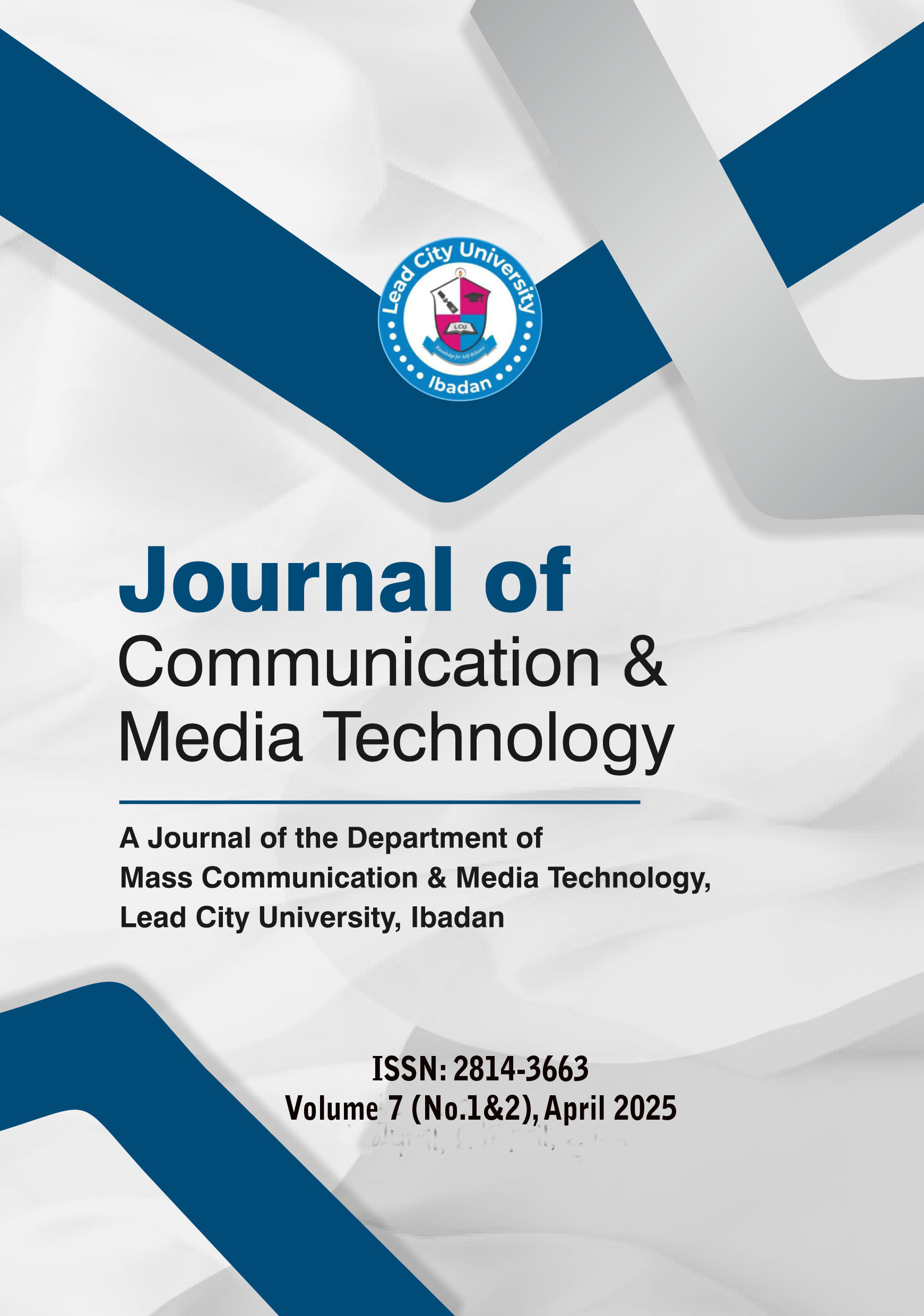Apologia as a Crisis Communication Strategy: A Case Study of IBEDC'S Public Engagements
Keywords:
Apologia, Crisis Communication Strategy, IBEDC, Public EngagementsAbstract
This study investigates how corporate organisations, particularly the
Ibadan Electricity Distribution Company (IBEDC), utilize apologia
strategies to manage public perception. Guided by Benoit’s Image
Repair Theory and Situational Crisis Communication Theory (SCCT),
the research aimed to examine the nature, implementation, and
effectiveness of apologia strategies in restoring trust and maintaining
corporate reputation. A mixed-method research design was employed,
comprising qualitative in-depth interviews with five IBEDC
communication personnel and quantitative content analysis of 41
apologia press statements and interviews from various corporate
entities in Nigeria and other countries. Data collection instruments
included an interview guide for qualitative responses and coding sheets
for content analysis. NVivo 12 was used for thematic analysis of
interview data, while descriptive statistics (frequency and percentage)
was used for the content analysis. The study found that IBEDC
predominantly employed bolstering, corrective action, differentiation,
and mortification as its core apologia strategies, this is partially in line
with the result of the content analysis; of the 44 corporate statements
analysed, 27.3% used corrective action, 18.2% used denial and evasion
of responsibility, and 13.6% used mortification. All the participants
emphasised timeliness, message clarity, and channel diversity (radio,
SMS, social media) as key to effective crisis response. The study
concludes that strategic, ethical, and multi-channel communication
paired with actionable follow-through is central to successful
corporate crisis management. It is then recommended that IBEDC...
and similar organisations should continue to utilise a combination of
traditional media (radio, SMS) and digital platforms (social media) to ensure inclusive and timely communication with diverse audiences during crises, while, a commitment to fixing issues and regular
progress updates is critical to sustaining public trust

